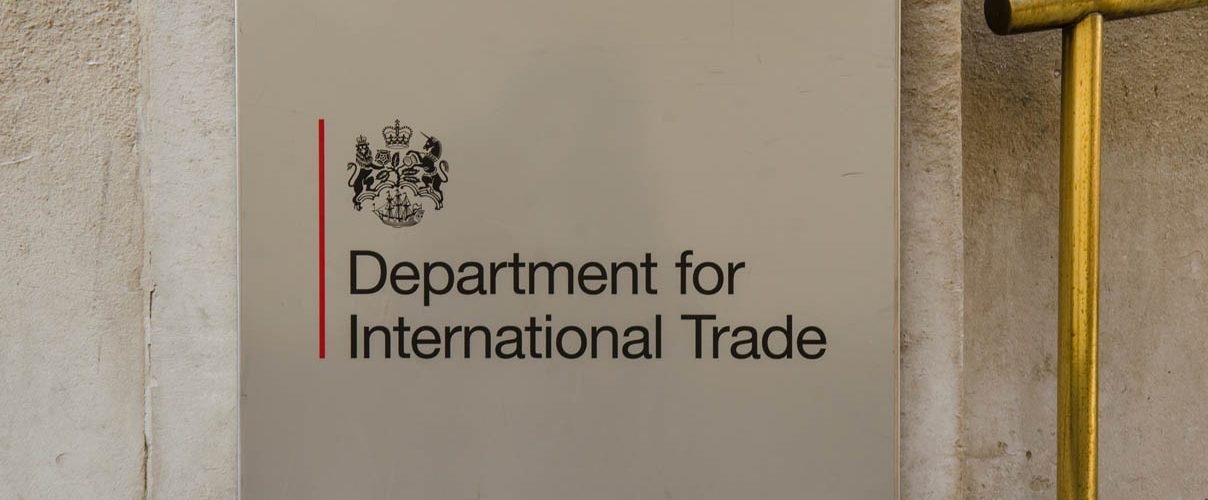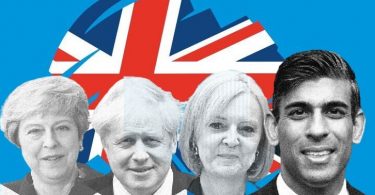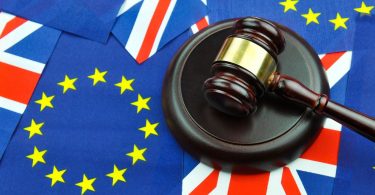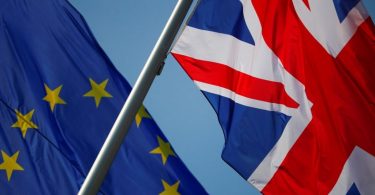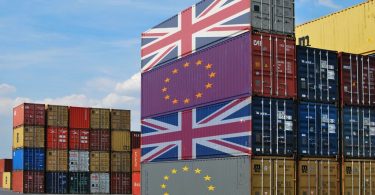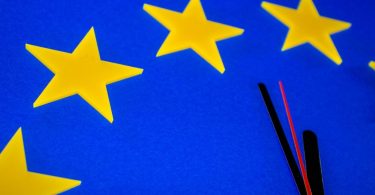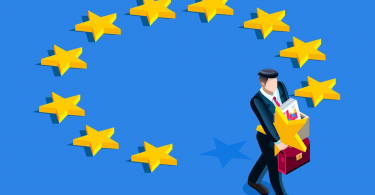By Martin Howe QC
Our government on our behalf is offering to pay the EU around €45-50 billion of money that we don’t legally owe, to submit to our courts and our Parliament being overruled by a wholly foreign court after we have left the EU, and to commit to keep our regulation in agriculture and possibly other fields “aligned” with the EU in order to resolve the Irish border issue. This is all so that we can reach the nirvana of having not an actual trade deal, but just talks about a trade deal.
It is clear that we do not legally owe these vast sums to the EU. Indeed it is probable that in law we have a net credit in our favour (as per this analysis of the UK’s potential financial liabilities).
The fact that we do not owe the money does not necessarily mean that it is wrong to agree to pay some money. I would advise a client as part of a settlement to agree to pay money that is not owed, if the overall benefits of a settlement, including the benefit of achieving a harmonious and beneficial future relationship with the other party, were sufficient to warrant the payment.
But if you are going to agree to pay a large sum of money that you do not owe, you need to look carefully at what is the value of the benefit you will get in return. The benefit is supposed to be the trade agreement that we will negotiate with the EU once we move on to the stage of actually talking to them about our future relationship. But no one has actually looked at what the EU will realistically offer in the way of a trade agreement, and demonstrated that it would really be worth €40-45 billion, or indeed that it would be worth paying any money at all for what will be on offer.
Open or closed free trade agreement?
The key question about any trade deal with the EU is whether it will be open or closed. An open trade agreement is one which allows goods and services to be exported between the parties if they satisfy certain standards, but does not restrict the right of either party to allow in goods and services from third countries. The most that an “open” trade agreement should say about goods and services from third countries is that if they are let in on easier terms than laid down in the trade agreement, then exporters from the other party to the trade agreement should also have the right to export their goods and services on those easier terms (a “most favoured nation” or MFN clause).
By contrast, a closed trade agreement will specify that goods and services that meet a certain standard may be traded between the parties, but will prohibit the parties from allowing in goods and services from third countries which do not meet that standard. While such an agreement will facilitate trade between the parties, it does so at the cost of restricting trade with third countries and preventing the importation of goods and services from outside which are cheaper or better than those available within. This is particularly so where the standards adopted are artificial and really designed to shield domestic producers from competition rather than being truly necessary to safeguard the interests of consumers.
The paradigm example of a “closed” trade agreement is the EU’s internal market (the actual accurate Treaty name for what is often referred to as the “single” market). That is based on harmonising detailed and prescriptive rules and regulations for all kinds of goods and services. While this assists in facilitating free trade between countries within the internal market, it does so at the expense of driving up costs, and more importantly it restricts trade with third countries whose exporters are required to comply with the rules. In addition, and unlike a closed free trade agreement where the common standards are mutually agreed, a country which joins the EU internal market from outside must submit to the EU unilaterally imposing changes and further rules on it with which it must comply.
These features of a closed trade agreement restrict unilateral trade liberalisation, but more importantly will render it difficult or sometimes impossible to conclude beneficial trade agreements with third countries. For example, you may be unable to offer a third country access to your own market for its insurance companies on the basis of home country regulation, because you are bound to apply a prescriptive set of rules under the trade agreement to any insurer who does business on your market. The third country will then be most unwilling to agree a trade deal under which your insurers can access their market on the basis of home country regulation.
The government rightly rejects seeking continued UK membership of the EU internal market for this reason, as well as for the reason that internal market membership would necessarily also involve continued free movement of persons.
So what will be on offer from the EU under a free trade agreement which gives preferential access to the internal market? A lot of light was cast on this question by a lecture given by Michel Barnier on 20th November 2017 (emphasis added):
“The UK will, of course, have access to the Single Market. But this is different from being part of the Single Market. And a good deal on our future relationship should facilitate this access as much as possible. And avoid a situation where trade would happen under the WTO rules for goods and services. To achieve this, there is a third key: we need to ensure a level playing field between us. This will not be easy. For the first time ever in trade talks, the challenge will be to limit divergence of rules rather than maximise convergence. There will be no ambitious partnership without common ground in fair competition, state aid, tax dumping, food safety, social and environmental standards. It is not only about rules or laws. It is about societal choices – for health, food standards, our environment and financial stability. The UK has chosen to leave the EU. Does it want to stay close to the European model or does it want to gradually move away from it?”
He went on to link these issues to the ratification of the UK’s future partnership with the EU. Those who choose to ignore these comments do so at their peril. It is clear that the EU will not be willing to conclude a free trade agreement with the UK unless we accept wide ranging obligations across our own internal market, and also necessarily as regards imports from third countries. Of particular significance are the references to “food safety” and “food standards”.
The EU has no legitimate interest in the standards of food eaten by UK consumers after we have left the EU. The references to these issues are pure protectionism: to lock in the highly profitable UK food market for EU producers and to exclude competition from outside. We are a net food importing nation with a strong interest in having low food prices – which would be of particular benefit to the many low-income families who voted Leave. Our consumers have spent the last 45 years paying prices for food inflated well above world levels, with the benefits of our captive market going mainly to EU producers outside the UK.
It is obvious that the EU want to maintain this situation as far as possible and will ruthlessly use a free trade agreement with the UK as a lever to achieve that objective. If we accede to such restrictions, the problem is not just that our consumers will carry on paying well over the odds for their food for the long-term future. It will also severely damage or destroy the prospects of concluding free trade agreements with major trading partners, such as the USA and Australia, both of whom have very important agricultural export interests.
The Irish border issue is not about the peace process – it is about Ireland’s wish to maintain exports into a protected UK market
This is what the row over the Irish border is about. The Irish government present this as concern for the Northern Irish peace process. It is nothing of the kind. Both the Irish government and their EU27 backers are cynically exploiting the issue as a lever to drive the UK to agree to follow EU agriculture rules after we have left, in order that Irish and other EU27 producers can continue to exclude competition from the rest of the world from the lucrative UK food import market.
That the UK government has agreed to “maintain full alignment” with EU Internal Market and Customs rules as a condition of accessing talks on trade is sheer madness. The “spin” seems to be that as a result of the intervention by the DUP, the actual scope of this commitment (i.e. which Internal Market and Customs Union rules, and what exactly “alignment” means) has been rendered so ambiguous and unclear that, like Humpty-Dumpty, the UK can declare that these words mean what the UK says they mean, neither more nor less – and that what they mean is very little.
This is a dangerous game. Let us quote the actual paragraph in the Phase 1 Agreement:
“49. The United Kingdom remains committed to protecting North-South cooperation and to its guarantee of avoiding a hard border. Any future arrangements must be compatible with these overarching requirements. The United Kingdom’s intention is to achieve these objectives through the overall EU-UK relationship. Should this not be possible, the United Kingdom will propose specific solutions to address the unique circumstances of the island of Ireland. In the absence of agreed solutions, the United Kingdom will maintain full alignment with those rules of the Internal Market and the Customs Union which, now or in the future, support North-South cooperation, the all-island economy and the protection of the 1998 Agreement.”
There is no doubt that the EU will insist that this means what they want it to mean, which is that the UK has unconditionally accepted a wide-ranging obligation to keep our regulations on agricultural and other goods in line with EU regulations and also to keep external tariffs in line – otherwise what can the reference to the Customs Union possibly mean? They will insist on such terms being inserted into any free trade agreement on offer to us, and we will have gravely undermined our negotating ability to avoid the imposition of such terms.
It is obvious that the EU will use the same tactic of forcing the UK up against the clock which has worked so brilliantly in causing the negotiating collapse by the UK which led to the Phase 1 agreement. They will push the trade negotiations to late 2018, and say that a trade agreement, and the promised but not legally secured transition period, will only be available to the UK if we accept their terms for a free trade deal however unpalatable to us.
The End Game: a Vassal-State Brexit without the benefits of either ‘Leave’ or ‘Remain’
The referendum campaign involved two opposed visions for Britain’s future. Under the first, favoured by the Remainers, the UK would stay in the European Union, participate in its councils, and – to the extent possible – seek to shape its future development in line with the UK’s interests.
Under the second vision, favoured by the Leavers, the UK would leave the European Union and take back control of its laws, borders and money, and would trade with the world outside the restrictive constraints of the EU’s customs union and common commercial policy.
Each of these visions is internally consistent, and has its pros and cons. The British people, however, voted decisively against the first and in favour of the second vision.
But where we stand today, we are in grave danger that neither vision will be achieved. Instead, we are in peril that a third scenario will come about, one not favoured by either side. That is for the UK to cease its formal membership of the EU, thereby losing its vote on EU laws, and its ability to influence – or if necessary veto – future Treaty changes. But at the same time we would remain subject to continued EU control of our tariffs and external trade policy, and continued EU control of a huge range of market-related internal laws.
We would have changed our relationship with the European Union from being a Member State into being a Vassal State: a mere rule taker who must comply with laws devised, interpreted and enforced by foreigners and by foreign institutions. This would have the gravest economic and political consequences.
The economic consequence is that it would make it impossible for us to benefit from the freedoms which we will enjoy as a result of leaving the European Union. We would be unable to reduce the very high duties and non-tariff barriers which the EU’s policies oblige us to impose on basics such as food and clothing.We would be severely hampered or prevented from concluding free trade agreements with non-EU markets.
Such a vassal-state Brexit would inevitably lead to Brexit being dubbed a failure, when the truth would be that Brexit had never been tried.
But the political consequences would be even more dire. Such an outcome would be – and would be seen to be – a clear betrayal of the promise made to all who voted in the referendum that their decision would be implemented. There could be nothing more corrosive to the already strained trust of millions of people in our political system, or more likely to produce an explosion of frustrated anger
Can we escape the trap?
Far from it being worth paying the money in the Phase 1 agreement in order to reach a beneficial free trade agreement with the EU, it is increasingly and glaringly clear that the only free trade agreements on offer from the EU are likely to be ones which it would be worth paying good money not to belong to. And it seems that in order just to reach the stage of having talks with the EU about future trade that are likely to prove worthless, our government is willing to compromise the independence of our courts and the sovereignty of our Parliament over our laws, and to give a commitment about aligning our regulation with the EU’s which – even if unclear – will endure even if no trade agreement is reached.
The only possible escape from the deep trap which we have dug for ourselves is to prepare actively for a no-deal exit in March 2019, and to be willing to execute that plan if the EU insists (as it will) on terms in a trade agreement which interfere with our ability to trade independently of the EU.
from www.lawyersforbritain.org/eu-deal-phase1.shtml

